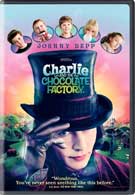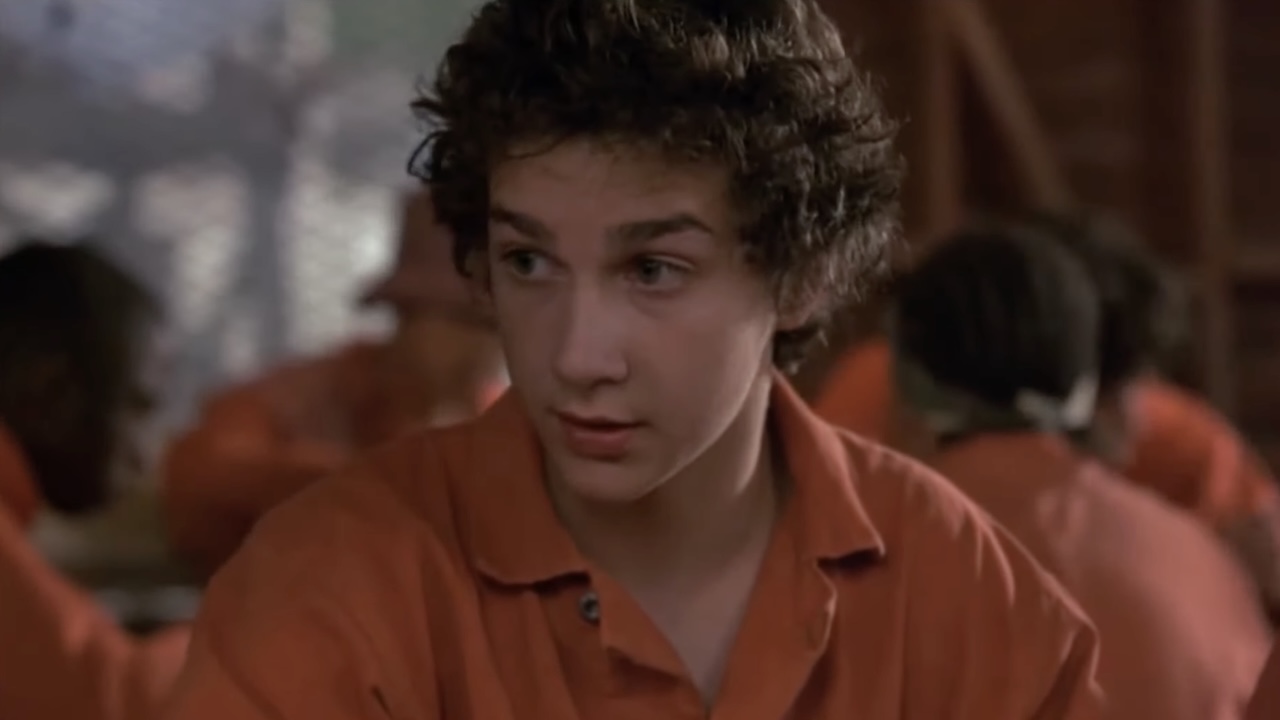There are some things that just don’t need to be remade. You don’t see musicians running out in an attempt to remake “Stairway to Heaven”, or filmmakers attempting a redux of Casablanca. While the Gene Wilder/Mel Stuart Willy Wonka & the Chocolate Factory is far from a perfect film, it gets just enough right to be a classic and earn a place in that “don’t remake this” category. Unfortunately nobody told Tim Burton that, resulting in his fourth collaboration with actor Johnny Depp: Charlie and the Chocolate Factory which isn’t a remake of the Wilder film as much as it is another presentation of the original book brought to the silver screen. You say chocolate, I say chocolat. Under the pretense of staying more faithful to the book, Tim Burton brings his eerie directorial style to the story of Willy Wonka, the eccentric candymaker who invites five children on a tour of his factory, four of whom are total brats. The non-brat, the story’s hero, is Charlie Bucket (Freddie Highmore), a child far too poor to have much of anything in common with the other kids, whose problems range from being totally spoiled, to being grossly overweight, to watching far too much television. Along the tour of the factory each child winds up being undone by their own flaws, as Willy Wonka deals with the haunting memories of his own childhood.
Wait a minute. Wonka deals with haunting memories of his own childhood? I don’t remember that being in the original Roald Dahl novel.
That’s right. Although Burton made an enormous deal about his film not being a remake of the 1971 musical, and went on at length about how his film was going to be a faithful retelling of the novel, Burton had writer John August bulk up the film with a glorious backstory for Willy Wonka, including his own issues with his overbearing, candy-hating dentist of a father (Christopher Lee). While I’m all for getting Lee in front of the camera as much as possible in his twilight years, the storyline has absolutely nothing to do with being faithful to the book. In Gene Wilder’s Willy Wonka’s words: “Wrong sir! You lose! You get nothing!”.
That backstory may have a lot to do with the movie’s main problem: the creepy, Michael Jacksonesque portrayal of Willy Wonka by the incredibly talented Johnny Depp. I never thought I’d be able to say this, but Depp is the movie’s weak point. Since his character is crucial to the entire storyline, that brings the movie cascading down around him like melted chocolate. Depp’s Wonka seems insecure and unsure of anything, mostly stemming from his father’s rejection. He talks a bit like a less incompetent Dr. Evil, and appears pale and sallow, the effects of years spent locked away from the outside world within his own candy factory. He doesn’t at all seem like the character that dominated the Dahl books: a mischievous sprite of a man who always knew more then he let on. Instead Depp’s Wonka seems almost malevolent, and not at all the type of man I’d let my child walk around with in an empty factory. Golden Ticket winner or not, one look at Willy Wonka and I’d have my child through the factory gates faster then you can say “whipple-scrumptious fudgemallow delight”.
The film does have some benefits over the 1971 version of the story. Thanks to the advancements of technology, this Wonka candy factory is totally immersive. It feels like the factory of the books, where the inside is much larger then its outside appearance and all we get is a brief glimpse at part of the factory. There is so much more to the place then meets the eye, mostly to serve Rube Goldberg style contraptions that make the candy, but at least the place is fun. And then there’s the Oompa Loompas.
The small denizens of Wonka’s factory, who serve as the factory employees, are vastly superior to the previous version of the movie. Instead of six or eight dwarfish people, Burton’s tale uses one single actor (Deep Roy), reproduced hundreds of times to create an army of workers. This gets even more impressive during the musical numbers, where Roy had to dance out the multiple parts hundreds of times. This is one heck of an endeavor, creating some truly interesting moments. Unfortunately the interest ends with the visuals. The musical songs (taken from Dahl’s original work) aren’t very memorable, with maybe one song sticking in the audience’s head by the end of the movie. They’re also given stylistic preference over moralistic accomplishments, so while the Oompa Loompas sing about the shortcomings of the children, the lesson is completely lost in favor of creating a visual masterpiece.
One of the pivotal lines of the film explains the zaniness of Wonka’s factory: everything there is pointless because it’s candy. “Candy doesn’t have to have a point, that’s why it’s candy.” It’s terrible that Burton was able to get that sentiment dead-on right in regards to candy, but not the candymaker. As a result, I predict this film with it’s fearful portrayal of Willy Wonka will be left behind in time while future generations continue to enjoy Wilder’s portrayal of the character. While it may not be as visually impressive, at least you don’t have to fear the candyman might molest your children. Warner Brothers has released two separate editions of Charlie and the Chocolate Factory on DVD: a single disc edition with just a few bonus materials, and a two-disc set with more extras and even some trading cards. Even though the price point between the two releases is only a few dollars, given my disinterest in the movie itself, can you guess which version I’m more interested in? The less money I have to spend on this film, the better.
Your Daily Blend of Entertainment News
The one feature the two different versions share is “Becoming Oompa-Loompa”, a look at creating the Oompa Loompa scenes using the single actor. I have to admit, this featurette really opened my eyes to all the effort this took. I mistakenly assumed the effects people had Deep Roy perform dance moves once, and then placed him in the scene multiple times digitally. Not so. If a shot had eight Oompa Loompas in it, then Roy performed eight times, one time in each place. Those eight shots would then be combined for the final shot. This means Roy put in more work then I ever imagined, and makes the Oompa Loompa scenes all the more impressive.
The single disc version also features a dance game where the viewers are taught to do two different Oompa Loompa dances and then get to dance along with the characters on the screen. It’s a cheesy little game, although after watching “Becoming Oompa-Loompa” I’m a bit more impressed by it, since Roy isn’t much of a dancer.
The two-disc version includes more games, a few more featurettes, and a biography of author Roald Dahl. That last item is the only thing that made me think about picking up the bigger (more expensive) set. Still, having seen the film theatrically, I knew the movie wouldn’t get much replay, so that countered my interest in the biography.
One note about the movie on the smaller screen. The film was definitely made with the large screen in mind. The vibrant colors don’t quite translate as well to the television, which suffers a smaller range of contrasts. More surprisingly, visual manipulations in the film become more obvious on the television. Several of the characters have been airbrushed so badly, they look like walking CGI creations instead of little kids. Also sync issues between Roy’s Oompa Loompas and Danny Elfman’s vocals become more apparent as well.
I can’t recommend Charlie and the Chocolate Factory very highly. It’s a tragic adaptation of a classic children’s book which has already had a decent film made about it. If you feel the need to pick up the DVD, rent it first and make sure you’re actually interested in owning this creepy take on the story. Then weigh how much you’ll actually watch it before reaching for that two-disc deluxe edition. You might just find that money better spent on some actual chocolate, then this creepy candymaker’s tale.

